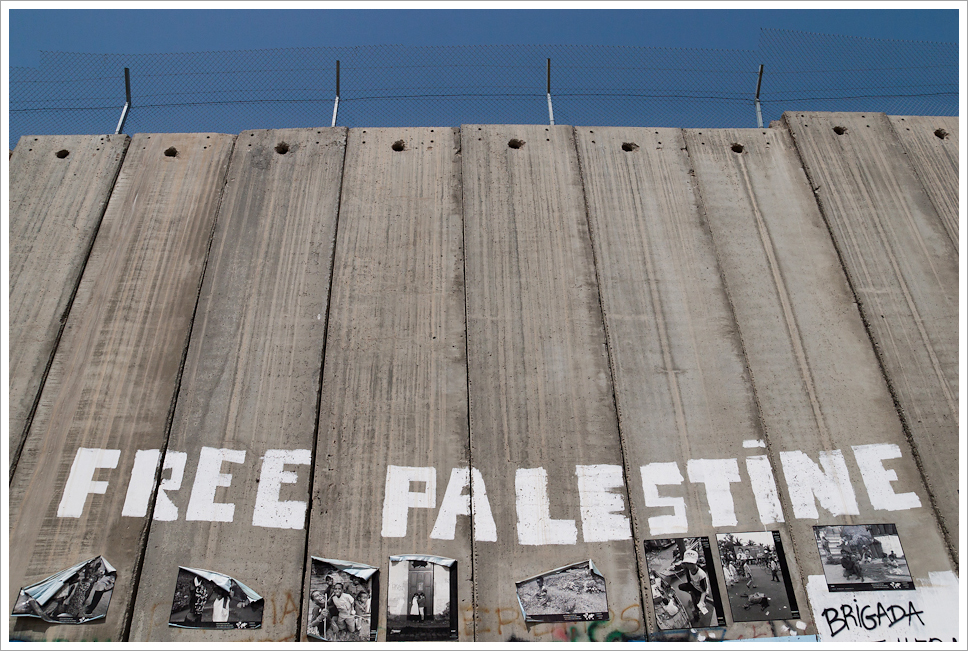Update: partnerorganisatie Bisan vanuit Ramallah
Nov 15, 2023

We knew that the context of Palestine as a partner country was very precarious, but at the same time it motivated the great (political) relevance of agroecology to start up a program. Through our consortium partner Viva Salud, whose presence was longer and more extensive in Palestine, we collaborate since last year with Bisan, a research center on the western Jordan Bank. There is no need to tell you that the situation on site is more precarious. We contacted Ubai Al-Aboudi, director of Bisan, and share his update.
Effects on the Palestinian population in the Western Jordan Bank :
- It has become easier for the Israeli army and police to shoot and kill Palestinians. There is much less to none control or investigation in case such incidents might happen.
- Meanwhile there are already more than a hundred victims in the Western Jordan Bank among which about thirty children.
- It has become easier for the Israeli army and the police to arrest Palestinians for no demonstrable reason. Previously they had to come to court within 48 hours and otherwise be released, now the term has been extended to 7 weeks. The consequence is that many hundreds of arrests take place without a trial.
- Palestinian workers who perform in Israel may not cross the border, which means there is currently a great deal of technical unemployment and consequently a lack of income. The impact on the Palestinian purchasing power is considerable. At the same time all import and food has become more expensive. Tomatoes normally cost between 2 and 6 shekel per kg, now it has become 13 to 15 shekel.
- The access to medical care is under pressure, partly due to the increase in psychological problems. Ubai indicates that the population is collectively in shock.
- Schools are partly open, depending on the proximity of the conflicts.
- All the roads between the governments (16 areas into which the country is divided) on the Western Jordan Bank are closed. People can’t get to work and Ubai hears regularly that people have been attacked by colonists en route.
- There is a huge increase in violence from colonists against all those finding themselves in Area C. Since the war, colonists are heavily armed and agression against Palestinians is tolerated and even encouraged by the security services. In some cases, the army, together with the colonists, assaults communities.
Effects on the agriculture in the Western Jordan Bank:
- The system to obtain access through the many checkpoints and barriers for farmers to enter their land has stopped. Many farmers are unable to work. As we are in olive harvest season, several olive farmers are in danger of losing their harvest.
- The farmers possessing land in the C AREA are afraid of being assaulted. Ubai has heard of one murdered farmer and several farmers injured.
- Olive groves and other agricultural properties (harvests, cattle, agricultural equipment, barns, irrigation systems…) are being attacked and destroyed. In the association of Saad Dagher (founder of the Palestinian Agroecological Forum) more than 50 ha of agricultural soil have been set on fire.
Effects on our program:
- The collaborators of Bisan can barely come to the office due to transport restrictions and the risk of being arrested (Ubai was arrested and interrogated earlier this year, see here). The farmers’ training sessions are at a standstill for the same reason.
- The PAF farmers experience physical agressions (land, harvests, equipment is destroyed), but can generally cope with the restrictions much better due to their self-sufficient nature. They are also less dependent on large machines that in many cases are destroyed or stolen. They are also less dependent on import and export restrictions which make it very difficult for normal farmers. Agroecology is very relevant in Palestine at the moment and after the conflict the agroecological movement will probably become even stronger, depending on how the conflict turns out.
On November 30th we organize a discussion evening concerning the future of Gaza, to which Ubai will contribute through video recordings. Do you have any questions for Ubai? Send a mail to: gerben.vanhoute@solidagro.be.






